Maintaining complete coordination and connection between players on the field is an indispensable element in football. Today, we 10jili want to share with you 5 simple but extremely effective passing techniques that you can start practicing right away.
The Lob – the first Advanced Football Passing Techniques
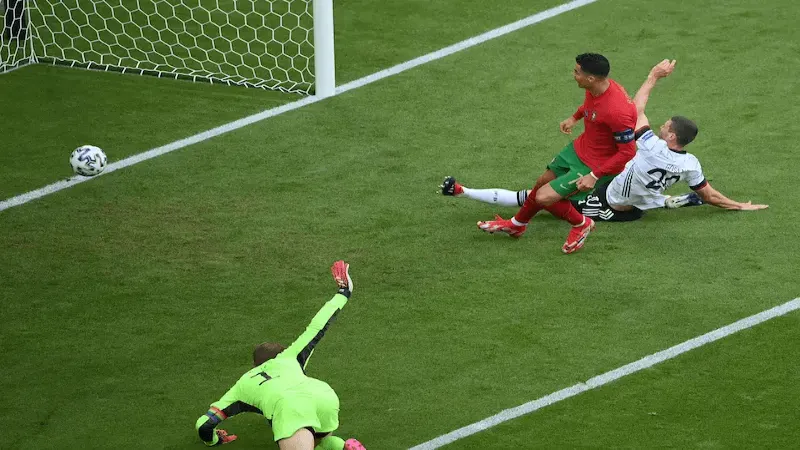
To be ready for an effective pass or hold the ball securely, place the ball near the inside of the cheek and near the tip of the toes, along with using your main kicking foot to create momentum for passing techniques the ball to the player. your teammates. When approaching the opponent’s goal and making passes, make sure you place the ball in a position where the opponent’s defenders cannot easily steal or clear it. Mark your passes and determine when is the right time to kick over the defenders’ heads, making it easier for your teammates to receive the ball and create the conditions to score against your opponents.
Passing and Holding the Ball Effectively
- Place the ball: Keep it near the inside of your cheek and the tip of your toes.
- Use your kicking foot: Build momentum to pass the ball to your teammates.
- Pass the ball away from defenders: Aim for a spot where the other team can’t easily reach it.
- Chip the ball: Kick it over defenders’ heads to make it easier for your team to get the ball.
Curve (curved pass type)
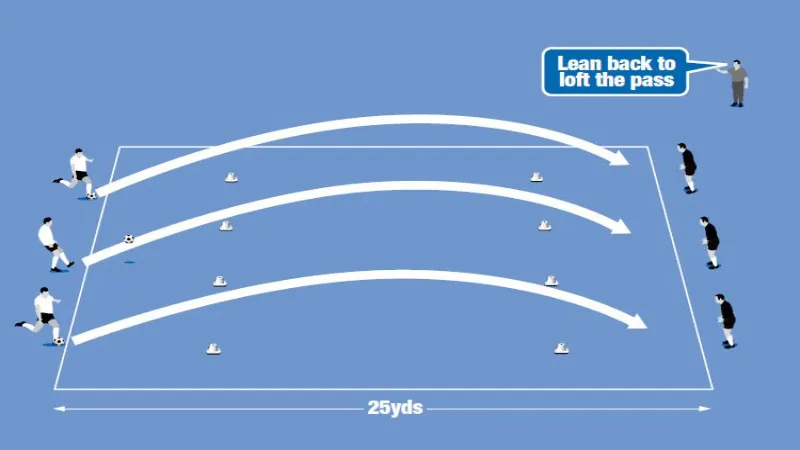
You can create curves for teammates in two ways: In the first method, you use the inside of the ball near the tip of the table to pass the ball at an angle. In the second way, you kick with the outside cheek near the tip of your foot. When performing either of these techniques, your pass may have a higher or lower curve to the surface of the court, depending on how your foot makes contact with the ball.
You can apply this type of pass when you want to adjust the ball’s path according to your teammate’s running path. In case you pass the ball straight to a teammate, there is a risk of the ball hitting the teammate’s back and easily losing the ball. You can add curves to your passes to teammates in two ways:
1. Passing techniques with the inside of the foot: Curve to the outside, use the inside of your foot towards the front of you.
2. Passing techniques with the outside of the foot: Curve to the inside, use the outside of your foot towards the front of you.
The curve of your pass will depend on how your foot makes contact with the ball.
This pass can be used when you want to adjust the ball so it follows your teammate’s run. If you pass the ball straight to your teammate, the ball is more likely to hit their heel and end up somewhere you don’t want it!
Top of foot
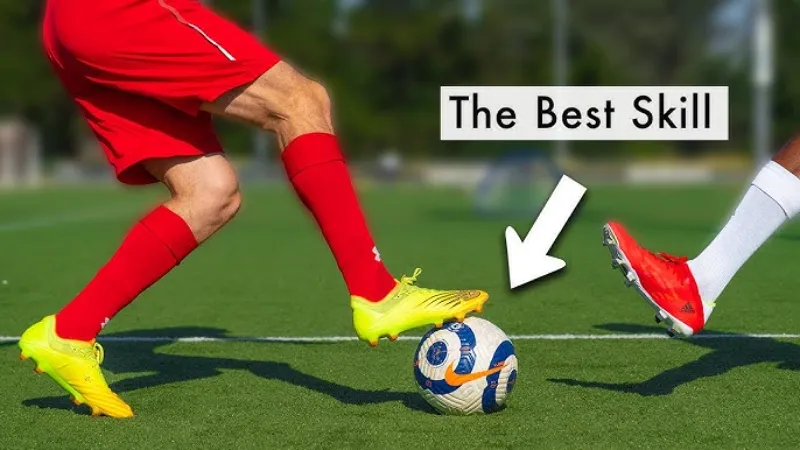
When you use the tip of your foot to kick, it will create strong force and make the ball go farther. To make a ball-toe pass, you need to rotate your ankles and use the ball of your foot to make contact with the bottom of the ball. The pass will be higher if you shoot the ball lower, and conversely, the pass will be lower if you shoot the ball higher.
Toe Kick:
- Kick with the tip of your foot for maximum power and distance.
Balltoe Pass:
- Twist your ankles and use the ball of your foot to strike the underside of the ball.
- Kick lower to send the pass higher, and kick higher to send it lower.
Outside of foot (style of kicking the outside of the foot)
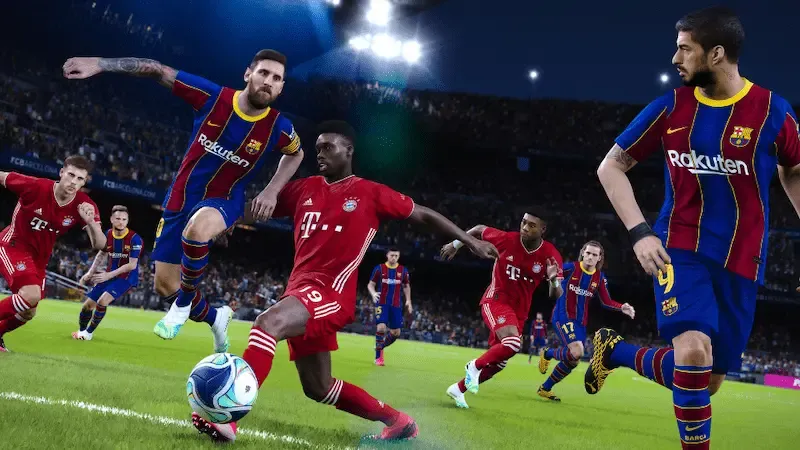
As you approach the opposing team’s goal, you may encounter defenders who make it challenging to pass the ball to your fellow players. If you are unable to execute a pass with your dominant foot, promptly switch to using the outside of your other foot.
This technique is particularly useful when you lack sufficient space to pass the ball effectively with your primary foot. By employing the outside of your non-dominant foot, you can maintain control of the ball and deliver an accurate pass to your teammate. This maneuver allows you to bypass defenders and keep possession of the ball, giving your team a better chance of scoring.
Steps:
- Approach the opponent with controlled dribbling.
- When defenders block your dominant passing lane, quickly shift the ball to the outside of your other foot.
- Push the outside of your foot against the ball and gently curve your toes downward.
- Apply a light tap on the side of the ball, ensuring that it travels towards your intended target.
- Follow through with a smooth motion to ensure accuracy.
Inside of foot
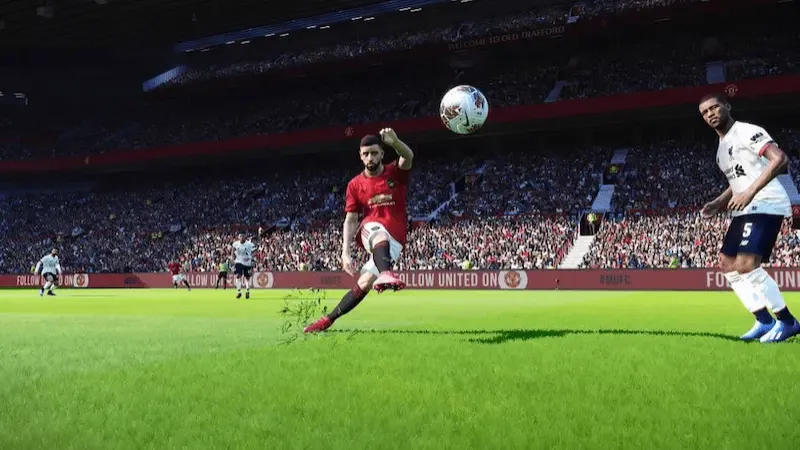
In every football match, the skillful execution of techniques is pivotal in securing victory. Among these techniques, the adept use of the inside of the cheek to pass the ball to teammates stands out as a game-changer.
To effectively employ this technique, cultivate your fast running abilities and seamlessly combine them with the art of passing the ball. This synchronized coordination enhances the effectiveness of the pass and creates opportune scoring chances for your team.
Regular practice and dedication are the keys to mastering this technique. By diligently honing your skills, you’ll improve your overall football playing ability. Embrace these techniques, and you’ll witness a significant boost in your performance on the field. Share your knowledge and help others elevate their football prowess too. Together, we can unlock the true potential of this beautiful game.
Conclude
In short, having good passing technique is very important in soccer. It not only helps players move the ball accurately and effectively but also helps them create offensive and defensive opportunities. To improve passing techniques, players need to regularly practice basic skills such as short passes, long passes and high passes. By practicing regularly and paying attention to factors such as speed, accuracy and trajectory of passes, players can improve their passing ability and become more well-rounded players.

